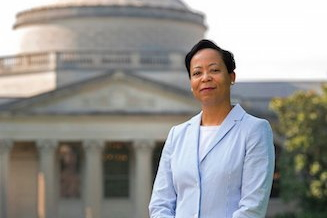‘Publishers could be doing so many different things’

Elaine L. Westbrooks was interviewed as part of Research Information’s report The Scholarly Publishing Research Cycle 2018
Last year you described scholarly publishing as “hopeless” and “broken”, has your view changed in the last 12 months?
In the United States we’re still stuck. However in Europe, particularly in places like Germany and Sweden, people have certainly made progress. I’ve been watching Plan S closely and it’s a progressive path moving forward. I know it has not come to fruition, it’s a plan and it’s not a perfect plan, but it does give me some hope. If the Europeans can move the needle a little bit, that puts pressure on some of these publishers that are gouging us. In the United States of course we’re in a very different kind of climate, and do not have government support to advance anything close to a Plan S. Generally there are significant barriers that wouldn’t give me a lot of optimism for changing the scholarly communication and publishing cycle in the United States.
What are the biggest challenges in the United States at the moment?
The biggest challenge is the inseparable connection with promotion and tenure. There are still a large percentage of faculty who are not aware of the scholarly communications problem, and the role that they play, which has resulted in an unaffordable and unsustainable system. The next generation of researchers are a little more aware, but it’s a very gradual process and we have a long way to go.
The open access landscape continues to grow, and that’s positive, however, it’s still not transformational, it’s still the minority of journals out there. Every year you see more and more journals being flipped, or people who are aware of these issues and have chosen to take the open access route, but it has still not presented me with relief regarding the resources I have to allocate towards collections.
What could the publishers be doing to help with these challenges?
Publishers could be doing so many different things that could be helpful. There are still opportunities to produce high-quality content in different kinds of ways, but some of the publishers are really wedded to a certain way of doing business, and we need some disruption there.
Publishers are in the driver’s seat, and they’re making the demands, and I would prefer that there’s more of a dialogue and that we were able to have more open discussion on what we are trying to achieve and how they can help us. Right now my back is to the wall, and they have a product that our faculty really wants, and it really pits libraries against publishers, when in reality it’s higher education that’s suffering the most from this problem. It’s not the library’s problem, it’s a higher education problem, and it’s squashing innovation and science. Publishers need to be more cooperative and collaborative, and also to think about more equity. In some cases the journal costs are different all over the world, and it’s not transparent. It’s hard to negotiate, when you don’t have the price. If they could be more transparent about the costs of their products, that would be a big start.
What can researchers do to help overcome the challenges in scholarly publishing?
The biggest challenge would be the untenured researchers. I can’t blame them, they have to get tenure, and they don’t care how predatory and gouging a publisher is. All they care about is the impact factors and the metrics that are important to the committees and their department chairs. More tenured faculty should speak out about these things; we need more champions. I have a champion on this campus, Todd Vision, and he’s done some really interesting work, but he’s just one person, and I need about 30 or 40. I need one in every department to really make a difference because researchers are apt to listen to other researchers. I’m not saying that Todd Vision is going to convince them to work a different way, but if we can appeal to very smart people and lay out the problem at least they have an understanding of the issues.
One of the things I see when I talk to researchers is they immediately reduce it and overly simplify it, because they don’t know the issues, they don’t know how complex and complicated it is. It’s very difficult to be able to have these conversations in five or 10 minutes; it’s not possible to talk about everything from scholarly communications to the problem with the impact factor and costs. These are very complicated things that have to be discussed at length.
Do you think the library sector could be doing more, or is it doing enough to overcome the challenges?
We could be doing more, but there’s a price for that. If I had another two people in our scholarly communications office I could do a lot more engagement across campus, with learned societies, and start looking at open monographs. It’s not because we don’t want to, or we don’t know how to address some of these challenges, it’s a capacity issue.
Despite some of my cynicism, I still feel very committed that this is my role on my campus to constantly talk about this problem, and to be a champion for it. It looks pretty bleak, however I’m committed to talking about it. I’m committed to finding different ways to solve the problem. I’m committed to educating and building awareness. It’s something I just have to do, and I feel many other people in my position feel the exact same way.
Elaine L. Westbrooks is Vice Provost of University Libraries and University Librarian at the University of North Carolina Chapel Hill
Download the free report, The Scholarly Publishing Research Cycle 2018, here.

